Repeated military coups and consecutive military regimes in Myanmar dating back more than half a century to the first military takeover in 1962 have prompted a series of mass exoduses of people from the country, with millions of citizens from all walks of life including intellectuals, political dissidents, professionals, business owners, students, workers and farmers leaving their motherland to escape repression.
The latest coup in 2021 has already caused massive displacement on an unprecedented scale, and things are expected to get worse.
There is a pattern of Myanmar people being forced out of the country; after the first coup staged by Ne Win in 1962; after the military takeover following the suppression of the pro-democracy movement in 1988; and again when military chief Min Aung Hlaing seized power in a coup from the democratically elected government last year.
The direct consequences of the 1962 coup—political repression, nationalization of private businesses, racial and religious discrimination, unemployment, economic crisis, a failed education system, and the decades-long civil war—were the major contributing factors forcing people out of the country in the years that followed.
But the Feb. 1, 2021 military coup has already produced more devastating consequences than the previous ones.
People are going through a period of great uncertainty the likes of which the country has never seen. Extrajudicial killings and arbitrary arrests are rampant. Unemployment is high, and educational opportunities are scarce. An overwhelming feeling of hopelessness is driving people to leave their motherland.
Compelled by political persecution
The first group that were forced to leave the country soon after the coup last year were the politically oppressed including elected lawmakers, politicians (especially from the National League for Democracy, which won a landslide victory in the 2020 election) and opponents of military rule, activists, members of civil society organizations and charities.
In terms of their professions, they included lawyers, journalists, artists and striking doctors, nurses, teachers, government employees and more. Many had to flee along with their families as the regime took their relatives hostage. There might be tens of thousands of them.
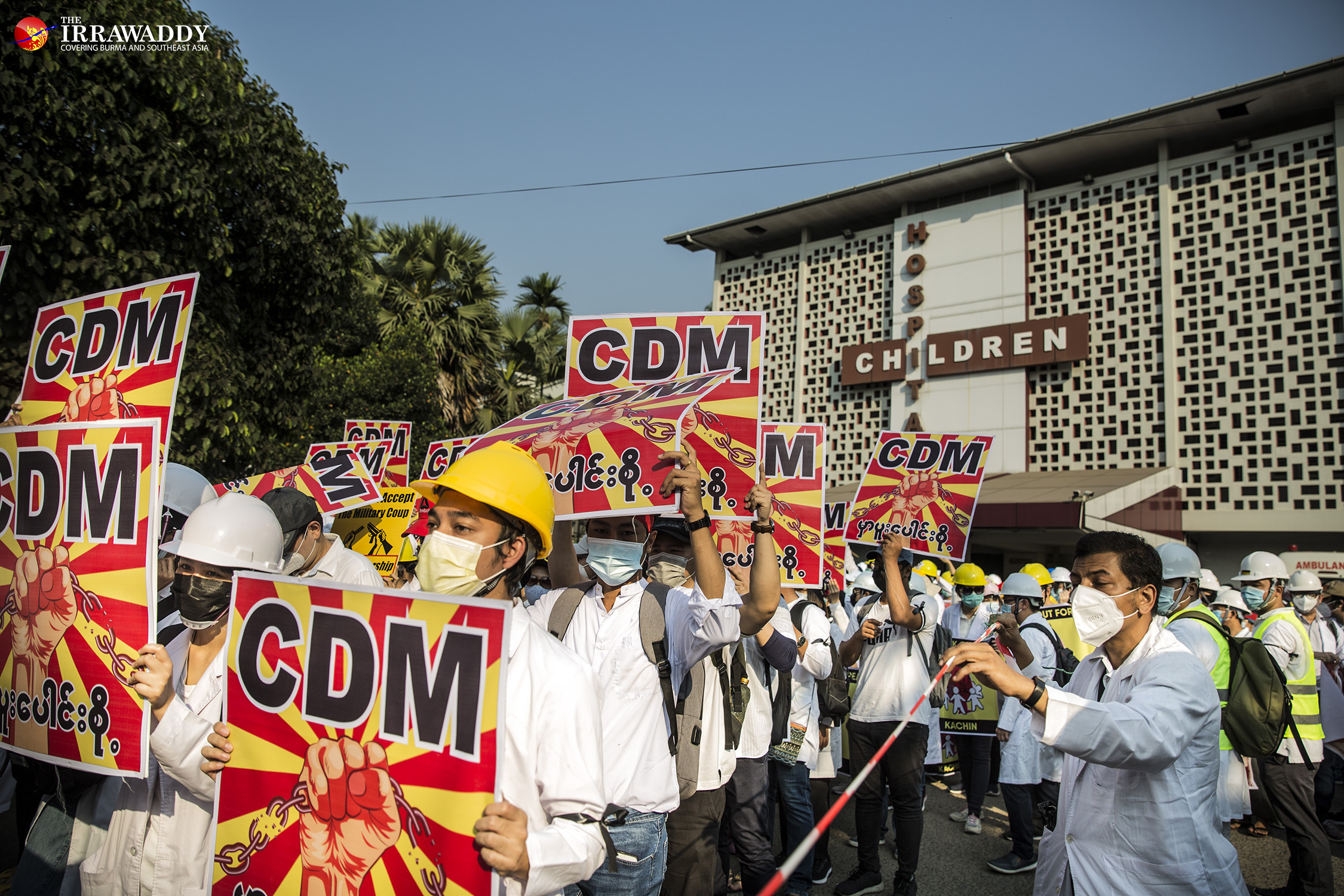
Many have been granted political asylum in foreign countries and thousands are waiting for approval. Those who don’t plan to go to a third country are taking shelter in territories held by ethnic armed groups and some are taking temporary shelter along the border. As the regime is hunting for them, they remain in hiding, and more are planning to leave the country.
Political dissidents faced persecution right after General Ne Win’s coup on March 2, 1962, forcing dissidents and students to flee the country. And the regime’s nationalization of the economy also forced businessowners to leave the country for good.
After the next military regime killed about 3,000 protesters during the nationwide pro-democracy movement in 1988, tens of thousands of protesters and students fled the country to join ethnic armed groups and to form a student rebel army to fight the regime. The military ruled with an iron fist under Senior General Than Shwe in the following decades, driving out many more dissidents, journalists, writers and other professionals.
Under Than Shwe’s rule, when a minister told the military dictator that the regime was at its wits’ end as to how to stop people from leaving the country, Than Shwe replied: “If you can’t stop them, then don’t. The fewer people, the easier it is for us to rule.”
So, millions of people including intellectuals and students left the country under Than Shwe’s rule. The passport office, then located in downtown Yangon, was busiest under his rule.
Driven out by civil war, unemployment
After the Min Aung Hlaing regime brutally cracked down on nationwide anti-coup protests in March 2021, the second group that had to flee their homes and the country comprised people displaced by the regime’s arson, artillery, and air assaults as anti-regime armed resistance erupted across the country.
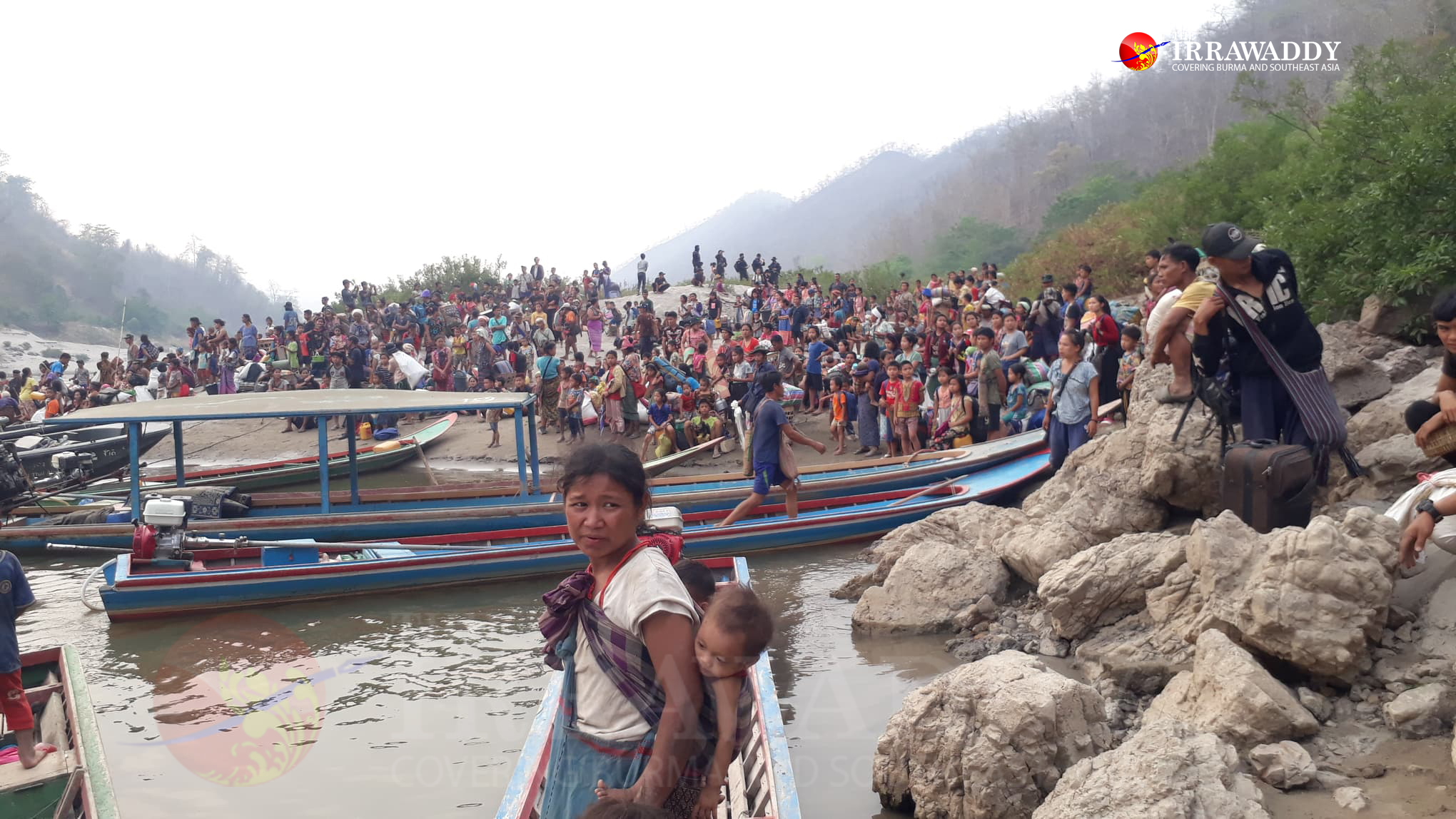
In many villages and towns in the anti-regime strongholds of Chin, Karen and Kayah states and Sagaing and Magwe regions, junta air strikes and arson attacks drove out tens of thousands of people at least. UNOCHA said that as of early September, 974,000 people had been internally displaced since the coup. In addition, the UN agency said that between the takeover and June this year over 40,000 people crossed the borders into neighboring countries, including many from communities close to the borders that came under regime attack. Meanwhile, nearly 919,000 Rohingya people who have fled Myanmar military atrocities are in Bangladesh—far surpassing the 140,000 refugees who, according to a 2012 estimate, have been living in Thailand for more than two decades.
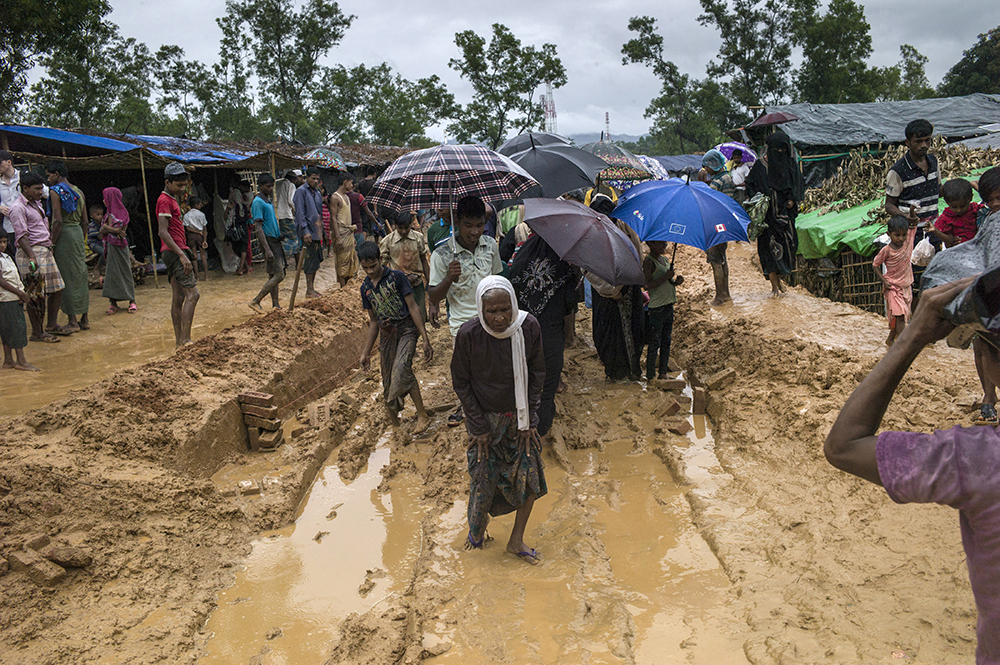
Meanwhile, the number of people forced to leave the country because of the economic downturn is growing. The junta-controlled Labor Ministry said that between the coup and June 30 this year it had issued overseas workers’ identification cards to 36,365 people leaving for 57 countries including Thailand, Singapore, Korea, Japan and Malaysia. The pace of people leaving picked up this year; ministry statistics indicate that it arranged for nearly 40,000 migrant workers to sign employment agreements within four months from March to June, meaning nearly 10,000 Myanmar people are leaving the country officially every month.
This number does not include the people who have illegally crossed the border, mostly into Thailand, or those who have left or are planning to leave with other types of visas. Counting them, the number of people that have left their motherland because of financial worries in the 18 months since the military coup could total in the hundreds of thousands.
Their number will contribute to a rise in the United Nations Department of Economic and Social Affairs (UNDESA)’s 2020 figure of 3.7 million Myanmar migrants worldwide.
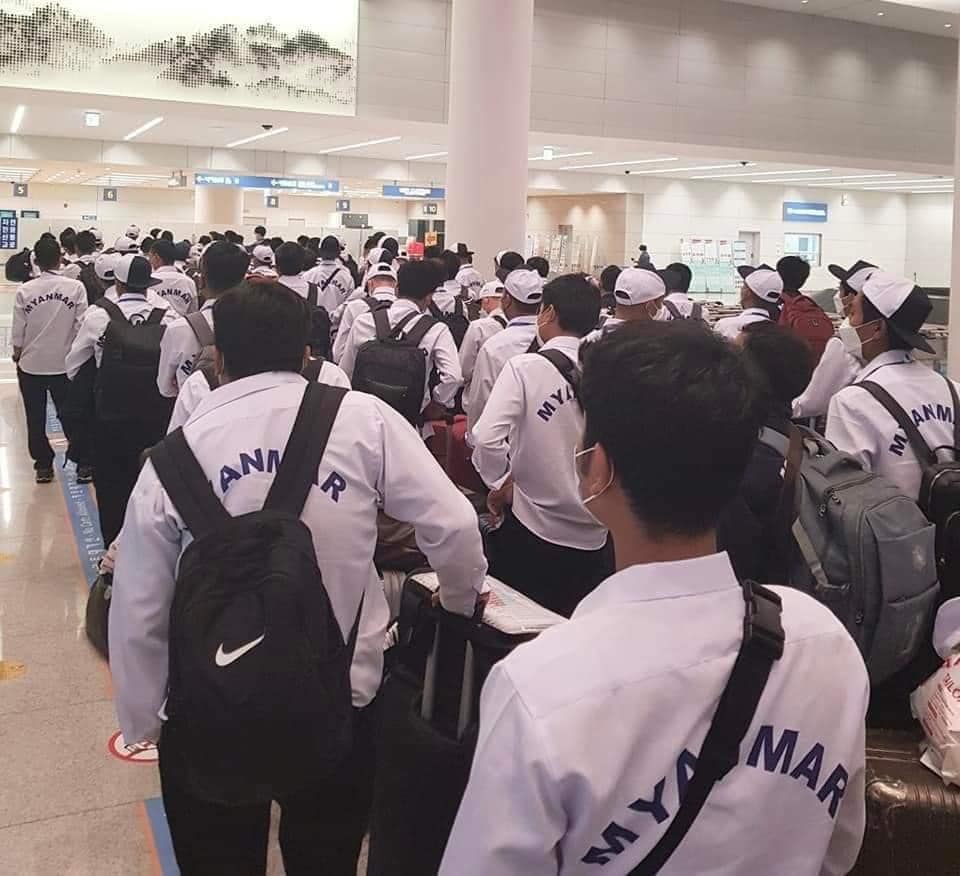
Brain drain
Since Ne Win’s military rule in 1962, Myanmar has seen a brain drain, as the country’s intellectuals have left the country, unable to put up with the restrictions and mismanagement of the regime. London University-educated Yangon University rector Dr. Tha Hla left for France after he had an argument with Ne Win. Yale-educated history professor Dr. Maung Maung Gyi left for the US after he was fired for criticizing the “Burmese Way to Socialism”, a failed economic policy of Ne Win’s “socialist” regime.
Under the Than Shwe regime, one of Myanmar’s greatest poets, Tin Moe, went into exile after he was imprisoned, and renowned versatile artist Win Pe sought refuge in the US. Students also joined the trend, seeking a better education and future.
Hope flared up again between 2016 and 2020 under the elected Daw Aung San Suu Kyi government. But more than one year after Min Aung Hlaing’s coup, the passport office is exceptionally busy again, even busier than it was under Than Shwe’s rule, as well-off families send their children abroad for study. They are moving along with their children, citing day-to-day insecurity and fewer business opportunities under Min Aung Hlaing’s rule. The trend is unprecedented and their numbers will only increase.
Thanks to Min Aung Hlaing, Myanmar is experiencing the biggest exodus in its history, affecting the country with a serious brain drain and loss of younger workers.
The social fabric of Myanmar is disintegrating.
But it appears that Min Aung Hlaing and his generals have been too busy protecting their self-interests and retaining their grip on power to salvage the country. All military dictators are much the same in this regard, and Min Aung Hlaing is no different from his predecessors, Ne Win and Than Shwe.
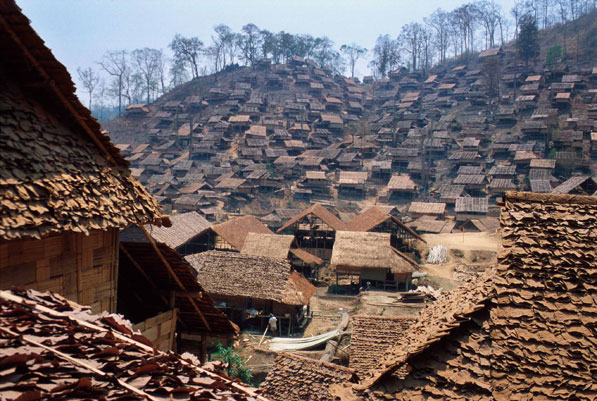
All three military regimes have spurred people to leave the country, especially to avoid political persecution and look for better life opportunities, which their country failed to provide them under military rule. An estimate of the total number might be nearly 10 percent if we roughly count Myanmar’s population today at 50 million.
Myanmar’s exodus is not just a domestic problem, but will affect the neighboring countries to which migrant workers and war refugees have fled, as well as Western countries that grant political asylum for dissidents.
The exodus will only worsen due to the regime’s oppression, increasing raids on towns and villages, and economic mismanagement. It is important to bear in mind that the root cause of all the problems in Myanmar, including this exodus, is the self-serving behavior of military generals who seize power at the cost of democracy.
To draw a conclusion from the experiences of the previous military regimes, Myanmar’s exodus problem has no end in sight as long as the military, or besuited military generals in disguise, rule the country. It will only increase the burden on neighboring countries and the international community, while taking a toll on the lives of those who remain in the country. Ending military rule is the only way to end the cycle of mass exodus from the country.

















